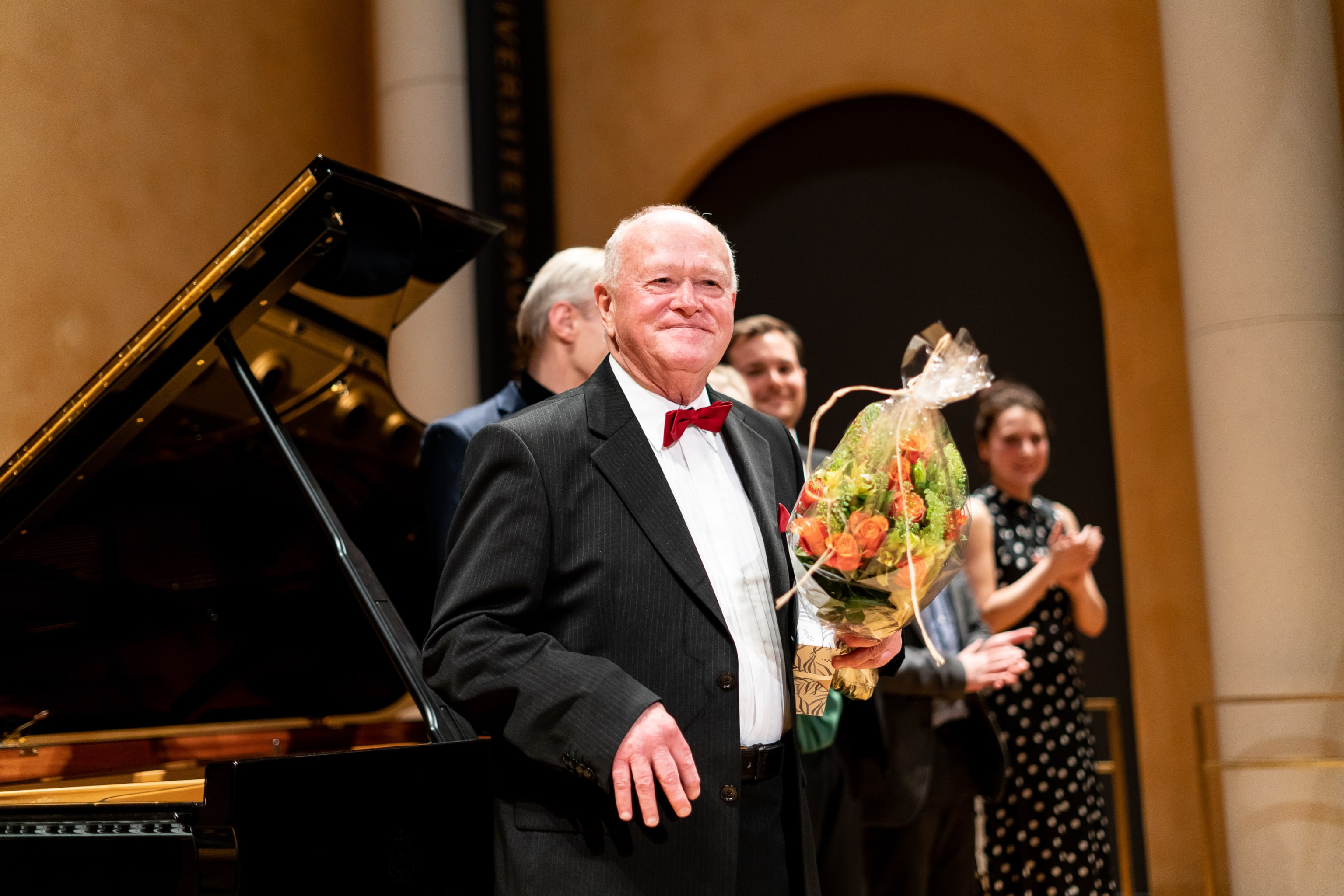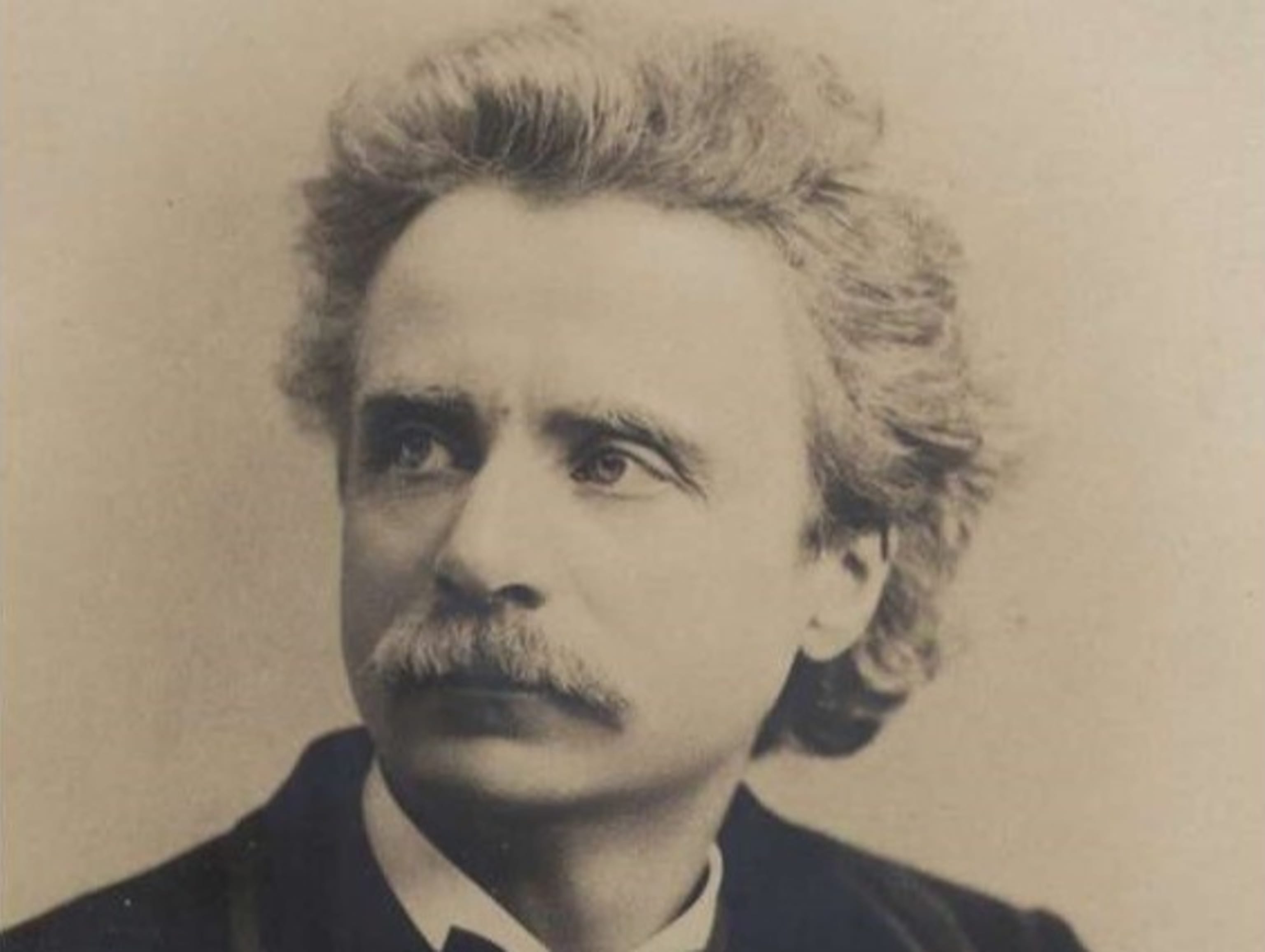From gaming-consoles to concert halls
- Home
- Festival
- 2021
- Articles
- From Gaming-Consoles To Concert Halls
- By:
By: Ketil Mosnes,
May 11, 2021
A new type of orchestral music is entering the concert scene.
A few years ago, Wembley Arena in London was filled with young spectators; something which is not particularly surprising as famous pop stars frequently visit the venue. This evening, however, neither Taylor Swift nor Justin Bieber were on the bill. London Philharmonic Orchestra was performing the concert The Greatest Video Game Music: Classical versions of the music from popular computer games such as Super Mario Bros., Call of Duty, Metal Gear Solid, Final Fantasy, Halo, World of Warcraft and Angry Birds. The concert was not a curious one-off event; similar events have become more and more common in large parts of the world. Even in little Bergen, Norway, the Bergen Philharmonic Orchestra performed the concert Sagas - Orchestral fantasy music in 2016, with a repertoire from famous games and fantasy films. And the response when the concert was announced? Three sold out evenings in the Grieg Hall!The fact that music for video games has become a genre that sells out large concert halls, has perhaps gone a little under the radar for some. To understand the phenomenon, one should start by having a closer look at the gaming industry in general:According to Marketwatch, the global gaming industry saw a bigger revenue than the global film industry in 2020. Games for TV, computers and smartphones have become a phenomenon whose growth apparently cannot be stopped, while Covid-19 – which forced many people to spend more time at home - did its part to ensure that the gaming industry experienced a jump in both popularity and sales.In light of this, it is perhaps not surprising that Paul McCartney has included his musical contribution to the game Destiny in some of his concerts, or that Tommy Tallarico, the initiator of the concert series Video Games Live, claimed that ‘the average video game soundtrack album outsells the average movie soundtrack three-to-one.’ Whatever one may think of the phenomenon, game music composers and enthusiasts demand to be taken seriously, and their demand could easily be backed up by the aforementioned numbers.
At the 2021 Bergen International Festival, you will be able to get acquainted with the video game music phenomenon, as it is the theme during the performance Let's play!. Here, four participants from Dirigentforum (the conductor forum) - a talent development program for young conductors - will lead well-known game music pieces performed by the Bergen Philharmonic Orchestra, the Edvard Grieg Choir and the Bergen Philharmonic Choir. During the spring of 2021, the four future maestroes - Guro Haugli, Daniel Reith, Hannah Andresen and Aage Richard Meyer - have worked with the Irish composer and conductor Eímear Noone, who herself will be present on the podium in the Grieg Hall.Eímear Noone is not just anyone in this setting: Her work includes the soundtrack for famous video games such as Starcraft II, Hearthstone and World of Warcraft, something which makes her a bit of a superstar in the gaming world. Noone has also been involved in several of the aforementioned game music concerts, and in 2020 she was the first female conductor during the Oscars in Hollywood.
– I can’t wait! It’s going to be my first time in Norway, and I’m really looking forward to it, Noone says in an interview with Bergen International Festival. – I’ve been telling everyone about the project (Let’s Play). I’ve seen how things are done in lots of countries around the world, and what you’re doing in Norway just makes so much sense; you have a lot of talent, and you figure a way to launch that talent out to the world. I think the team are just fantastic, and I talk about them all the time…to other colleagues and organisations. I have been working with the young Norwegian conductors, and I just feel that there’s an atmosphere of collaboration and respect, and an environment that inspires to learning and making bonds that last and go further. Also, the idea that we’re not just doing a concert…there are masterclasses, talks, we’re making a documentary together, and the concert will be filmed. Out of one project, we have a 360-degree approach where there’s a professional development and exposure for the young artists… and then there’s the documentary, which is an art form too. So the project is utilising the skills and professions of a whole lot of people. This is the kind of thing that I constantly talk about in interviews back home, because it’s an approach that makes so much sense. I’m delighted to be a part of it!
Eímear Noome started studying composition and conducting at Trinity College Dublin when she was a teenager, and today she and her family alternate between living in the Irish capital and in Malibu, California. She says that the road to becoming an established and renowned game music composer was marked by coincidences:
– It wasn’t like I grew up as a video game musician. My musical background is very traditionally classical. I started at a young age, being in conservatories for years. I began my formal composition studies at seventeen, and I also studied film scoring for four years; learning the harmonic language used in different types of film, and how to orchestrate in order to get a cinematic sound. When I was about nineteen, one of the older students came into the college bar and asked if someone could throw together some choir parts for him. So we went into a studio in Dublin, and I remember sitting on the carpet writing some parts, which we then recorded. I think we got paid 50 euros or something. About six months later, my brother called and yelled ‘oh my god, did you work on Metal Gear Solid!?’ I said ‘No?!’ ‘But I’m looking at your name on the credits!’ he said. It turned out I had contributed to a major video game that became a classic, and it was by accident.– What happened next?
– I was hired as an assistant orchestrator, and one day the guy that I worked for – who was sitting in LA – asked me: ‘I work on (the music for) this video game…they don’t have a big budget, but…do you want to give it a try?’ I was in my early twenties, I had just finished my undergraduate degree, I was studying conducting, and I was thrilled to work with a big orchestra and do this thing! Actually the room I’m sitting in right now is where I did the orchestration on the project, which turned out to be the first edition of World of Warcraft…a game with more than 100 million individual users.
– The gaming industry has grown tremendously, where do you envisage it being in, for example, ten years?
– People expect more interactivity today, and what I see happening in the future is everything becoming more interactive. We already have the capability of virtually watching concerts, and the pandemic has accelerated a lot of these augmented reality and interactive experiencal technologies. Everything is going to become even more interactive, and this is where real life and gaming life are going to come together. I mean, the older example is Pokemon Go for AR, but I’m talking about a much more complex version of that. Nowadays there is every possible type of game you can imagine. My two-year old son is using an app called Reading Eggs, and he already recognises all of the letters of the alphabet. That’s gaming too!A quick Google search shows that there are many voices who believe video game music represents the future of orchestras, and that the popularity of concert series such as Video Games Live is just the beginning of what could be a global, gigantic concept. Eímear Noome is obviously aware of these allegations, but she still has some objections:
– I see video game music as part of the future of orchestral music, and I see orchestral music becoming more varied. However, I don’t see it taking over anything. What I hope is that young people who attend gaming concerts will become curious about the orchestra, and feel comfortable in the concert halls. There are always several hundred young video game music fans who want to meet us after the concerts, and I don’t ask them ‘what’s your favourite song’, because to a video game music fan every piece is one song. So I’d rather ask them ‘does that mean your favourite band is the orchestra?’ And they go: ‘Uhm..I suppose so!’ The sound of an orchestra is no longer your grandparents’ music, it’s your music, because you’ve had your whole self surrounded by it for hours and hours while playing. It’s different than watching a film where you hear a great score. Maybe you watch the film again, maybe you buy the soundtrack, but when you’re playing a video game you listen to the soundtrack for days, weeks, months…or if it’s an online game like World of Warcraft it’s maybe years. So it becomes the soundtrack to a person’s life, which means the sound of the orchestra becomes a part of the soundtrack to their lives too. My greatest hope is that the audience will go: ‘That was great! I wonder what else this orchestra is playing?’ You know, the video game music is just one little offshoot from the orchestra repertoire legacy. And in terms of the future of orchestral music, I’d say video game music is a part of what I see as a bright future…one of many beautiful parts.
Supported by Vestland county council



